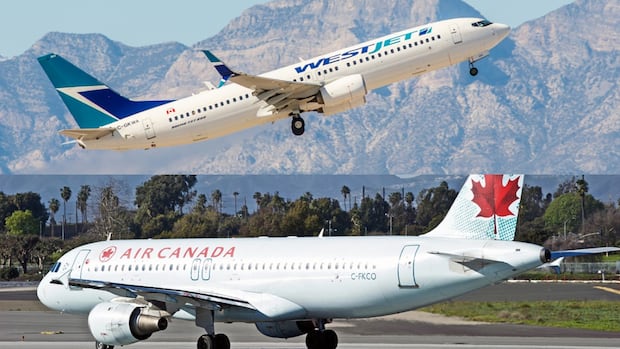
Competition Watchdog Call for Comfortable Foreign Ownership Rules in Airline Industry Report
The Bureau of Competition Bureau is calling for changes to improve the competitive landscape in the Canadian airline industry, which currently includes rules limiting foreign ownership of Canadian airlines.
Watchdog reiterated the 117-hit market study published on Thursday, reiterating the airline industry of Canada dominating two major carriers-air Canada and Westjet-Ghrelu market.
Those airlines are competing directly with each other compared to six years ago, the report said, Westjet served low domestic flights at Eastern Airports, and Air Canada is serving fewer domestic flyers at Western Airports.
The agency stated that more competition would have low fare and high quality service, while improving transparency around prices will help passengers to make more informed decisions while purchasing flights.
The current boundaries of Canada are also competing on the foreign ownership of the airlines, Watchdog said, and loosening those restrictions will make it easier for new, small airlines to use finance from various sources.
It recommended foreign companies to take full ownership of Canadian Airlines, which only operate domestic, forcing a “a new class of airline” that will bring global expertise and capital.
The bureau also suggested that individual international investors were suggested to have a large part of the voting interests in Canadian Airlines, increasing the amount from 25 percent to 49 percent.
John Gradek, a professor of aviation management at McGill University, said that if the government loosens the rules around the foreign ownership of the carrier, there is a price to pay.
He said, “Decisions made by the carriers that have a significant impact by foreign (owners) cannot be in the best interest of Canadians,” he said.
Extending air travel capacity in remote areas
The Bureau of the Competition Bureau stated that the North and remote communities have to face specific difficulties for air travel as it is not cost effective for most airlines to operate small, far -distant population serving areas, and where there is a lack of infrastructure of air travel.
Canadians, especially living in secondary markets, are less than the current status of the airline industry, Gradek said, offering and maintaining services in those markets – at a reasonable price – is a major challenge.
Calgary-based, low-cost airline links Air have stopped operations citing the increasing cost amid the reasons for the closure. McKenzie McMillan, a traveling group of travel group, told BC Today’s Michel Eliot that Canadian Airlines struggle more than their American counterparts because fewer people travel long distance between urban areas.
“If you live in Sault Ste. Mary, or you live in a medicine hat, or you live in Yarmouth … if you want to go on a flight you are in trouble.
The Bureau Bureau recommends that a national work group be set up to focus on air transport in remote areas. Overall, it made 10 recommendations to improve the competition, including:
- Removing sections that offer international flights to an airport in only one local area.
- Public access improvement for airline industry data, such as airline quality information.
- Reviews how airports are managed and funded.
It also suggested limiting the power of the Transport Minister to override parts of the merger process between the airlines. CBC News has reached the ministry for a statement.
According to the report, the success of small airlines Porter and Flair is improving the playground. Air Canada and Westjet have faced both competition from at least one of the small carriers since 2019.
The bureau warned, “However, the history of airline entries and exit shows that these competitive benefits are delicate, especially during the economic shock,” the bureau warned.
CBC News has approached Westjet and Air Canada for response.
Consider Canada’s airline industry issues
The Bureau of the Competition started its study last July and called upon the Canadian people to contact the agency and share their opinion. Air Canada and Westjet were ordered a final decline to hand over information for market studies by a federal court.
For yearsConsumer advocates and industry experts shared concerns that the airline industry suffers from severe shortage of competition, some said air Canada and Westjet dominated Quantity A duality.
Some passengers also have Expressed disappointment At the high cost of domestic air fare, inflammation of the cost of the ticket beyond the base fare with additional fees and surcharge.
And disgruntled Fliers have made a record-number of complaints about the situation of air travel in recent years. Backlog Hit a new peak in the previous spring.
Meanwhile, many small discounts of the country have been twisted or filed for bankruptcy-which include Links Air and Canada Jetline-and failed to unload the new airlines, such as Westjet-owned snatch, which eventually turned into primary functions of its original company.
